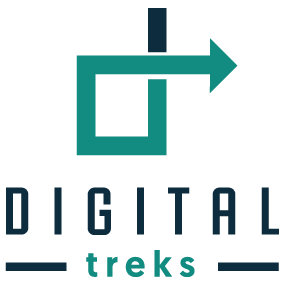Most successful businesses are customer-centric, agile and innovative. Digital Transformation (DX) initiatives are aimed at utilizing digital technologies to create new or improved business processes; superior customer experiences and refreshed or new business models. In reality, the term DX is a source of anxiety and panic across the entire organizational strata from the shop floor to the boardrooms.
The annual Executive Perspectives on Top Risks study by Protiviti and North Carolina University’s ERM Initiative finds that digital transformation related topics remain in the top ten of business risk concerns among C-suite executives and board members.
To ordinary people the ongoing 4th industrial revolution conjures images of an all-conquering army of high-tech AI-powered robots on the march – disrupting and destroying everything in its wake. While to business executives DX is an existential threat across many strategic and operational themes including:
(1) finding & retaining digital talent
(2) keeping pace with technology & innovation
(3) technology-based competition and disruption.
This fear probably derives from several factors; the sheer pace of change during the current digital age, the high levels of uncertainty; inherent fear of the change process (which is inevitable during a digital transformation journey); the pathological fear of disruptors (the Ubers and the Air BnBs”).
Every one of us is familiar with age-old real-life examples of how industries have been disrupted and how livelihoods have been lost. Think about:
- Urban mobility – the decimation of Taxi industry by digital hailing service such as Uber and Taxify;
- Music Industry – the continuous technology-led reconfiguration of distribution and consumption of music;
- Film photography – the fall of Kodak, (which most of us believe to have been caused solely by technology disruption)
- The rise of Smartphones accompanied by the fall of Nokia
We need not amplify the fear of Digital Transformation
Pundits and digital transformation experts who define digital transformation only from the technology disruption perspective worsen the situation and amplify the fears.
Contemporary thinking on the subject attempts to show that the term DX itself is A concept born out of fear. IE University proposes that DX should be defined as “a natural evolution of competitive capabilities in an environment in which digital has become paramount.”
Digital Transformation is not about Technology Only
DX is more about people, culture, skills, organisational competencies and leadership than it is about technology.
Having the best technology does not entail success in Digital Transformation. We view Digital Transformation as much more than just being about the disruptive nature of digital technology. DX is about leveraging several business areas (people, culture, talent & skills, leadership, optimization of resources and organizational agility) through intelligent people-oriented use of digital technologies to deliver value.
The digital transformation process is impactive on all the 3 Ps of business function – People, Process and Physical. As the world moves from analogue to digital, transformation will happen across 5 strategic areas known as 5 Domains of Digital Transformation Customers, Competition, Value, Innovation and Data.
Digital Treks’ Guide to Allaying the fears of Digital Transformation – Here is how we can pacify DX anxieties
- It is a journey – Like most revolutions, Digital Transformation is a journey it happens over time. While it is happening at a much faster pace than the recent 3rd Industrial Revolution, we have to remember that our context in the 21st century befits the challenges that we face. We are faster, more diverse, more globalized, with access to better resources than at any one point during human civilization. Small countries can compete with big countries so can small companies against big ones. A well-planned journey need not be foreboding.
- Ask Not the Technology Question First? – Do not start by asking the technology question ask the traditional business questions.
Ask: What is my current strategy and business model? Is it sustainable in view of internal and external factors including changing customer needs, competition, internal strengths and weaknesses? Use various tools and models to understand your digital business environment and identify gaps and opportunities.
How then do I harness digital technology in my strategy and business model to stay abreast of the changing environment and deliver sustainable value to my customers?
- Manage inherent Fears – Fear induced by uncertainty is wired in human DNA. We fear the unknown. Will I lose my job? Will AI replace me? Will a digital start-up completely obliterate my business? The sources of potential “fears” are endless. However, much can be done to calm the angst including carefully planned open communication channels; ensuring collaboration and staying engaged with all levels of employees throughout the change process and seeking advice from digital transformation experts.
- Manage Change – The digital transformation journey will require major changes across several organizational areas including, culture, skills, talent, leadership and of course technology. The good news is most business leaders would have gone through some episodes requiring drastic change at some point in their life. They should tap on this wealth of experience and knowledge to manage the inevitable change
- Understand Disruption – Not all business models will be disrupted to death at least not to the levels of Nokia and Kodak. The key is understanding the shifts across the 5 Domains of Digital Transformation. Disruption happens when you no longer deliver value to customers or when competitive innovations starts to deliver better value than you do through deeper market insights gleaned from data
While digital disruption success stories are often lauded with much pomp and fanfare, we also have less mentioned horrific failure stories (past and current) among digital start-ups and even established entities. These include Google Glass, Blackberry, WeWork and many others.
- Do what you do best – Relax and do what you do best – delivering value to your customers through continuous innovation and self-disruption. Most things you do best today can be done better with technology or you can completely change the way you do things and delve into new opportunities or business models.
- Get Started – Fail Fast, Fail Small, Fail Often, But Fail forward – Start your digital transformation journey with small scale low cost pilots and trials, aim at inexpensive quick wins, do this often and learn from the failures to create lasting innovation and sustainable business model.
Conclusion
If you are running or managing a successful business it is probably because you have continued to provide superior value to customers, you have stayed abreast or even ahead of customer needs, you have continued being innovative across many spheres to stay ahead of competition. In the digital era you will continue to draw from the same “well of success” except that you will have the power of digital technology to exponentially enhance your capabilities and core competencies.
By Octivius Mutsa Kahiya
Octivius is an award winning multi-skilled international Digital and ICT C-Level executive with proven success in developing executing company growth strategies and transformational programs for B2B, B2G and B2C sectors. He has worked for Tier-1 Global Mobile Network Operators across 5 countries in 3 continents as well as having managerial oversight across 14 additional African markets.
info@digitaltreks.co.za


